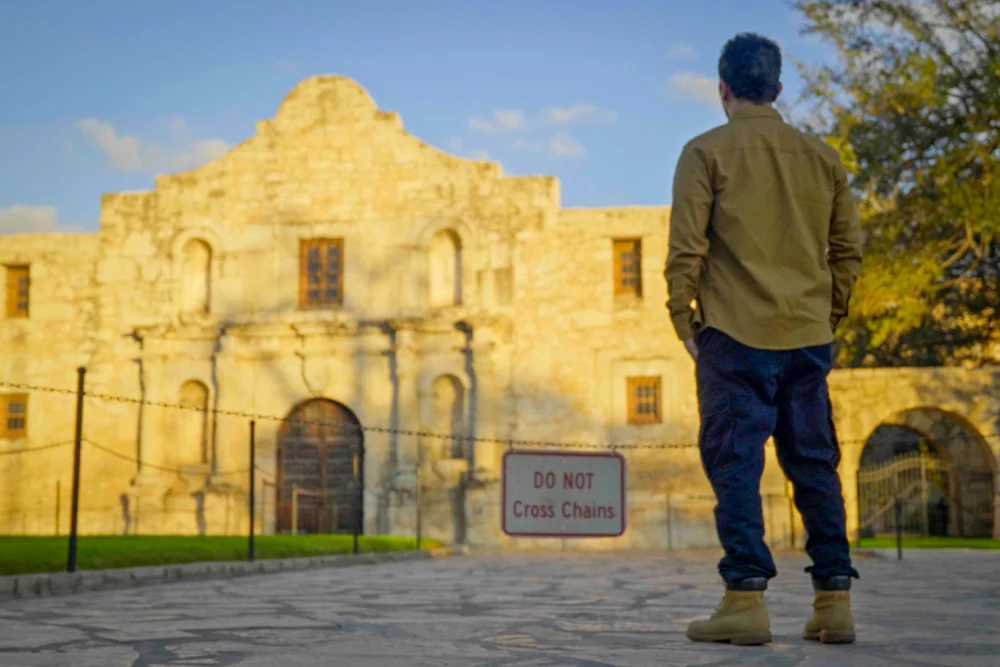- 14 3402-5578
- Rua Hygino Muzy Filho, 737, MARÍLIA - SP
- contato@latinoobservatory.org
 John Leguizamo at the Alamo in San Antonio. NGL Studios
John Leguizamo at the Alamo in San Antonio. NGL Studios
John Leguizamo's documentary series, called "American Historia: The Untold Story of Latinos”, explores Latino history in the United States and Latin America, seeking to reverse the "erasure" of Latino contributions throughout history. The three-part series, which premieres on PBS, features everything from advanced Native empires to Latino civil rights movements, according to a report by NBC News.
Leguizamo explains that the motivation for the series stemmed from his 2017 play, "Latin History for Morons”, and his desire to correct the historical exclusion of Latinos, reinforced by a study from Johns Hopkins University that revealed that 87 percent of Latino topics were not adequately covered in history books.
The series follows Leguizamo as he visits historic sites and talks to experts, including Dolores Huerta, Latino civil rights icon. The first episode focuses on indigenous empires such as the Olmecs, Mayans, Aztecs, and Incas, while the second explores important Latino figures in U.S. history between the seventeenth and nineteenth centuries.
Also according to the NBC publication, Leguizamo and co-creator Ben DeJesus, highlight the challenge of telling the Latino story, since much of this information is difficult to find, requiring years of research and study. Leguizamo was inspired by the books of Uruguayan writer Eduardo Galeano, especially the Memory of Fire trilogy, which narrates the history of the Americas in three phases: from pre-Columbian tribes to European colonization, independence movements, and the social and political events of the twentieth century.
In discussing the legacy of the Latins, Leguizamo emphasizes the equality between the Latin American empires and those of Europe and Asia, highlighting achievements such as the development of the Mayan concept of zero and the construction of advanced aqueducts, pointing out that, however, the diseases brought by the Europeans were more devastating than their weapons.
The series also reveals little-known stories, such as the financial aid of Latin allies to George Washington during the American Revolution, when Cuban women donated their jewelry to support the American army.
According to the article, for Leguizamo, knowing these
stories not only empowers, but is also part of an act of activism. He believes
that these historical facts change the perception of Latinos, offering them a
sense of belonging and importance, especially for younger generations. DeJesus
reinforces that Latinos have always been part of American history, since
colonial times.











